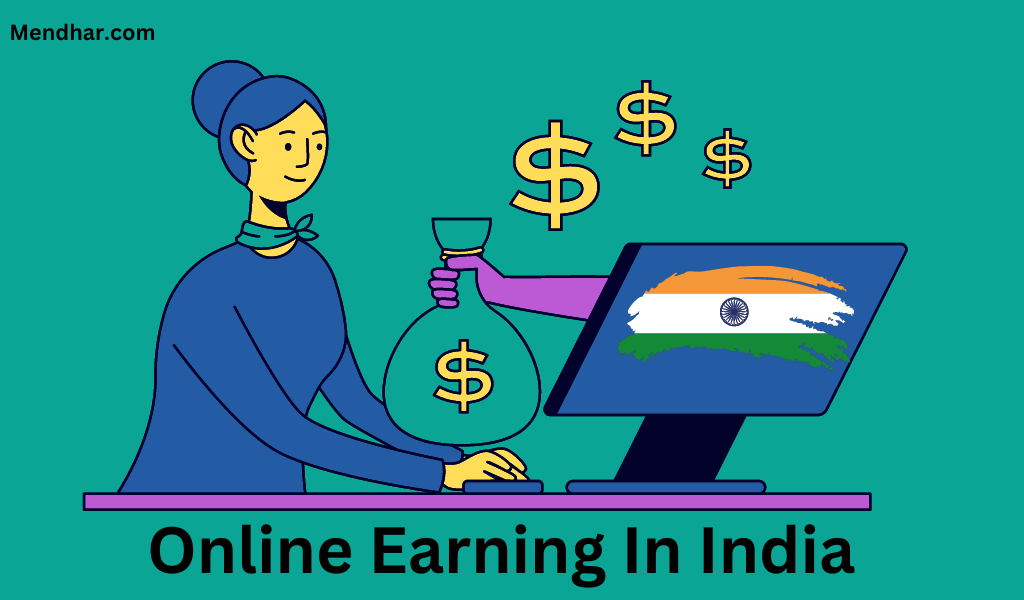Unveiling the Opportunities and Challenges of Online Earning in India

In the dynamic landscape of the digital era, the concept of earning a livelihood online has gained significant traction, especially in a country as diverse and vibrant as India. The internet has opened up a plethora of opportunities for individuals to explore alternative sources of income, transcending geographical boundaries. From freelancing and online marketplaces to affiliate marketing and e-commerce, the avenues for online earning in India are diverse and evolving. In this article, we will delve into the various facets of online earning, exploring the opportunities, challenges, and the changing face of work in the digital age.
The Rise of Freelancing and Gig Economy:
One of the most notable trends in online earning is the rise of freelancing and the gig economy. Platforms like Upwork, Freelancer, and Fiverr have provided a global marketplace where Indian freelancers can offer their skills and services to clients worldwide. Whether it’s graphic design, content writing, programming, or digital marketing, the gig economy has empowered individuals to monetize their expertise on a project-by-project basis
.However, the gig economy comes with its own set of challenges. Fierce competition, pricing pressure, and the need for continuous skill upgradation are some of the hurdles freelancers face. Additionally, navigating international transactions, taxation, and understanding the legal aspects of remote work can be daunting for those new to the freelancing landscape.
Affiliate Marketing: A Lucrative Avenue
Affiliate marketing has emerged as a lucrative avenue for online earning in India. Bloggers, content creators, and social media influencers collaborate with brands to promote their products or services and earn a commission on each sale generated through their unique affiliate links. The vast reach of social media platforms and the growing number of internet users in India have contributed to the success of affiliate marketing as a viable source of passive income.
Nevertheless, the saturation of certain niches, building a substantial audience, and maintaining trust with followers pose challenges in the world of affiliate marketing. Success often depends on the authenticity of recommendations and the ability to stand out in a crowded digital space.

E-Commerce Boom: From Sellers to Entrepreneurs
The e-commerce boom in India has transformed the way people buy and sell goods. Platforms like Amazon, Flipkart, and Etsy have not only provided a marketplace for established brands but have also enabled individuals to become online entrepreneurs. Small businesses and artisans can now reach a wider audience, tapping into the vast consumer base that the internet offers.
However, breaking through the noise and establishing a brand presence online requires strategic marketing, product differentiation, and an understanding of e-commerce dynamics. Additionally, managing logistics, and inventory, and adhering to the ever-changing policies of e-commerce platforms are crucial aspects that online sellers must navigate.
Online Surveys and Microtasks: Small Gains, Big Impact
For those looking to make a modest income with minimal investment of time, online surveys and microtasks present an accessible option. Numerous websites and apps offer opportunities for users to participate in surveys, watch videos, or complete small tasks in exchange for monetary rewards or gift vouchers.
While these platforms provide a low barrier to entry, the earnings are often limited. Users may find themselves spending significant time on these activities for relatively small financial gains. Moreover, the legitimacy of certain survey websites and the potential for scams make it essential for users to exercise caution and choose reputable platforms.

Challenges and Considerations:
Despite the growing opportunities for online earning in India, there are certain challenges that individuals need to navigate. Internet connectivity remains a significant barrier in rural areas, limiting access to online opportunities. Moreover, the lack of digital literacy and awareness about online earning avenues prevents many from harnessing the full potential of the internet.
Additionally, the evolving nature of online work brings forth questions about job security, benefits, and the blurred lines between personal and professional life. Balancing the flexibility of remote work with the need for stability and social interaction poses a challenge for many individuals transitioning to online earning.
Conclusion: Navigating the Digital Frontier
In conclusion, online earning in India has witnessed a remarkable evolution, driven by technological advancements and changing work dynamics. From freelancing and affiliate marketing to e-commerce and microtasks, the avenues are diverse, catering to a wide range of skills and preferences. However, success in the digital frontier requires a strategic approach, continuous learning, and the ability to adapt to the ever-changing landscape.
As India continues to embrace the digital age, individuals have the opportunity to redefine traditional notions of work and explore new horizons in the online realm. While challenges persist, the potential for growth and innovation in the online earning space remains vast, offering a promising future for those willing to navigate the complexities of the digital economy.
